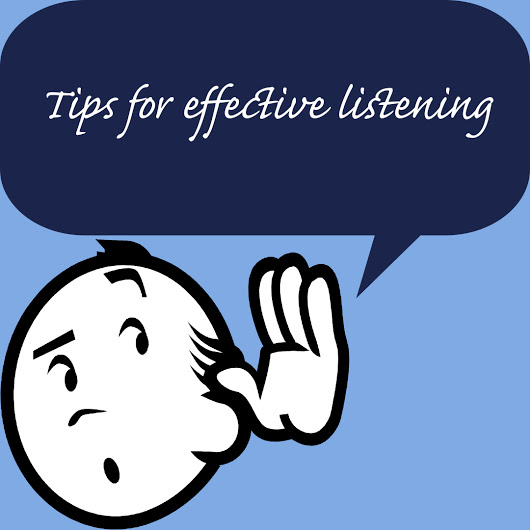
04 Apr 10 Tips To Become A More Effective Listener
All too often we are far more enthusiastic about talking than we are listening, yet it is so vital if we are to communicate effectively. Most break downs in relationships are caused because people talk at each other without really making contact. Unless someone hears what has been said, including the subtext, the words have little value.
When we are actively listened to we feel valued and are more likely to engage in negotiation and compromise.
Listening is about a great deal more than just words. Watching facial expressions and body language is often a more accurate barometer than the words that are being used. Nice things being said where the smile doesn’t reach the eyes is an obvious example.
To be an effective listener it is vital that you listen actively.
10 Tips for Effective Listening
1. Make eye contact:
Talking to someone while they scan the room, study a computer screen, or gaze out the window is like trying to hit a moving target. How much of the person’s divided attention are you actually getting?
2. Read the body language of the talker:
Are they relaxed, anxious, angry? Extremes are easy to recognise but often the message is much more subtle.
3. Mirror the talker’s body language:
If you feel sad when the person with whom you are talking expresses sadness, joyful when they express joy, fearful when they describe their fears—and convey those feelings through your facial expressions and words—then your effectiveness as a listener is assured.
4. Show that you are listening:
Nod, make appropriate responses and show your understanding through appropriate facial expressions and an occasional well-timed “hmmm” or “uh huh.”
5. Be attentive but stay relaxed:
You don’t have to stare continuously at the other person. You can look away now and then and carry on like a normal person. The important thing is to be attentive.
6. Ask them to clarify if you are not clear about their meaning:
When you don’t understand something, of course you should ask the speaker to explain it to you. But rather than interrupt, wait until the speaker pauses. Paraphrase: so what you are saying is……….
7. Use open ended questions:
The who, what, where, when – a question that cannot be answered with a simple “yes” or “no”, or with a specific piece of information, and gives the person answering the question scope to give the information that seems appropriate to them.
8. Don’t interrupt or impose solutions:
When listening to someone talk about a problem, refrain from suggesting solutions. Most of us don’t want your advice anyway and if we do, we’ll ask for it. Most of us prefer to figure out our own solutions, we just need you to listen and help us do that.
9. Use empathy:
Acknowledge difficulties, but be careful not to fall into the trap of going into anecdotes from your experience. “ I sense that you are finding this rather difficult” rather than “Oh I know, it happened to me but mine was bigger, more difficult etc”. Empathy is the heart and soul of good listening.
10. Take a real interest:
If you are simply going through the motions the lack of sincerity will be obvious to others. Leave your ego behind, concentrate on the other person.

Listening Skills Exercise!
For at least the next week, at the conclusion of every conversation where you have exchanged information, conclude with a summary statement.
In conversations that result in agreements about future obligations or activities ensure summarising takes place, this will ensure accurate follow-through, and will feel perfectly natural.
Effective listening has been shown to positively impact your career, relationships, and ability to lead. It is something that doesn’t just occur; it takes conscious effort, but the rewards are great.
Let me know your progress by emailing me: su@simplesolutionssu.com and please share your comments.
To Your Success,

No Comments